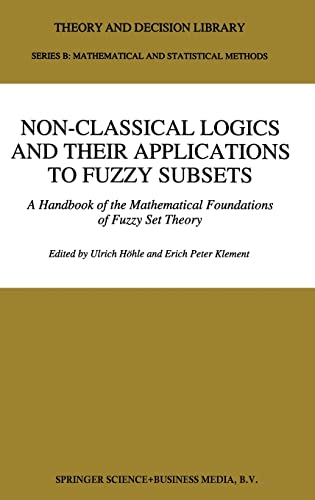Non-Classical Logics and their Applications to Fuzzy Subsets is the first major work devoted to a careful study of various relations between non-classical logics and fuzzy sets. This volume is indispensable for all those who are interested in a deeper understanding of the mathematical foundations of fuzzy set theory, particularly in intuitionistic logic, Lukasiewicz logic, monoidal logic, fuzzy logic and topos-like categories. The tutorial nature of the longer chapters, the comprehensive bibliography and index make it suitable as a valuable and important reference for graduate students as well as research workers in the field of non-classical logics. The book is arranged in three parts: Part A presents the most recent developments in the theory of Heyting algebras, MV-algebras, quantales and GL-monoids. Part B gives a coherent and current account of topos-like categories for fuzzy set theory based on Heyting algebra valued sets, quantal sets of M-valued sets. Part C addresses general aspects of non-classical logics including epistemological problems as well as recursive properties of fuzzy logic.
Non-Classical Logics and their Applications to Fuzzy Subsets: A Handbook of the Mathematical Foundations of Fuzzy Set Theory (Theory and Decision Library B)
$78.04
This handbook provides a comprehensive study of the mathematical foundations of fuzzy set theory and its relation to non-classical logics.
Additional information
| Weight | 0.744 lbs |
|---|---|
| Dimensions | 15.6 × 2.4 × 23.4 in |






Reviews
There are no reviews yet.